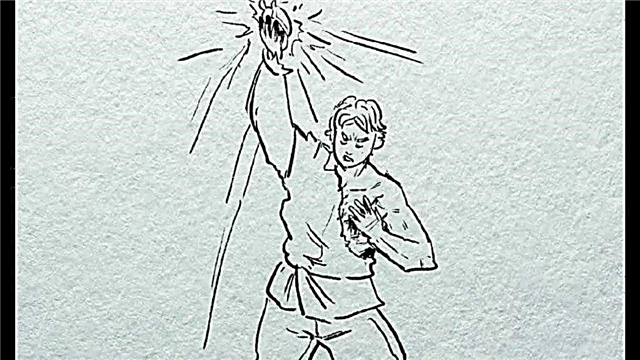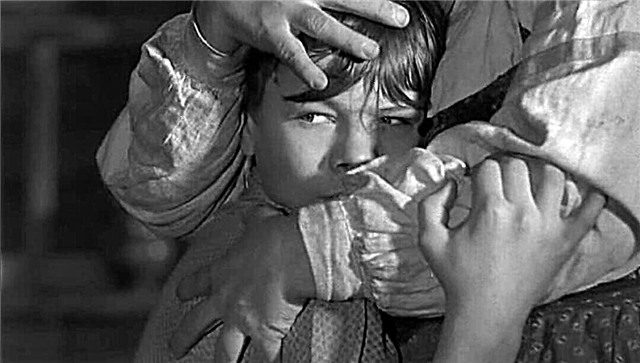The Nibelung was called one of the two kings killed by Siegfried. Then this name passed to the Dutch knight himself and his fabulous subjects - the keepers of the treasure. Beginning with the twenty-fifth adventure, the Nibelungs are called burgunds.
In the wonderful tales of bygone days it is said that a girl named Krimhilda lived in the land of Burgundians - so beautiful and sweet that all the knights of the earth dreamed about her. The cause of many disasters was this extraordinary beauty.
Krimhilda grew up in the capital city of Worms under the protection of three brothers-kings, brave and noble knights. Gunther, Gernot, and young Giselher ruled Burgundy, relying on a brave squad and faithful vassals - the most powerful of them was Hagen, the ruler of Tronier. For hours one could talk about this brilliant courtyard, about the exploits of the Burgundian heroes, about their tournaments, feasts and fun.
Once Krimhilda had a dream, as if a falcon had flown up to her room and two eagles had pecked her eyes. Uta's mother told her daughter that the falcon is her future husband, who is destined to die at the hands of the killers. Then the girl decided not to get married, so as not to mourn later on her beloved. Many married to the pretty princess, but were refused. She enjoyed peace until the glorious knight led her to the crown. For his death, Krimhilda terribly avenged her relatives.
The king of the Netherlands Sigmund had a son Siegfried - the beauty and pride of his native country. The young warrior was so brave and handsome that all the ladies sighed about him. Hearing of the wondrous Burgundy maiden, Siegfried set out to get her hand. The alarmed parents begged their son not to mess with arrogant and warlike burgunds. But Siegfried insisted on his own and set off on a long journey, taking with him only twelve people. The court escorted the prince in despondency and longing - for many, his heart suggested that this venture would not bring to good.
When foreign knights appeared in Worms, Hagen immediately recognized Siegfried and advised Gunther to respectfully accept the illustrious hero, who, in a fair fight, won the tremendous treasure of the Nibelungs, the sword of Balmung and the invisibility cloak. In addition, this knight is invulnerable: killing a terrible dragon and washing himself in blood, he became horned so that no weapon took him. Siegfried immediately offered Gunther a mortgage duel on the property. All the Burgundians were enraged by this arrogant challenge, but Hagen, to everyone's surprise, said nothing. The king pacified the ardent knight with affectionate words, and Siegfried, fearing to lose Krimhilda, accepted the invitation to stay in Worms. A year passed in tournaments and competitions: Siegfried always got the upper hand, but he still could not see Krimhilda, although the girl secretly watched him from the window. Suddenly, the Saxons and Danes declared war on Gunther. The Burgundians were taken by surprise, and the king, following the advice of Hagen, told Siegfried about everything. The hero promised to repel the threat with his Dutchmen and to help himself asked only a squad of fighters from Tronier. The puffy Saxons and Danes were given a crushing rebuff - Siegfried personally captured their leaders, who vowed never to attack the Burgundians again. As a reward, Hunter allowed Siegfried to meet with his sister at a feast.
Gunther wanted to marry the Queen of Iceland Brunhilda, a mighty warrior maiden. Siegfried agreed to help a friend, but in return demanded the hand of Krimhilda. It was decided that four would go on a dangerous trip - both kings and Hagen with their younger brother Dankwart. Brunhilda immediately identified Siegfried and greeted him first, but the Dutch hero said that he was only a vassal of the Burgundian king. Gunther had to defeat Brunhild in three competitions: throw a spear harder and then throw a stone, and then jump over it in full arms. The losing hero, as well as all his companions, was inevitable death. Using an invisibility cloak, Siegfried defeated Brunhild, and the proud maiden had to reconcile: she agreed to the marriage, and announced to her Icelanders that they are now subjects of Gunther. To cut off her path to retreat, Siegfried went for his Nibelung vassals.
When the heroes triumphantly returned to Worms, Siegfried reminded Hunter of their agreement. Two weddings were played on the same day. Brunhilda considered that the king humiliated his sister, who became the wife of a simple vassal. Gunter's explanations did not satisfy her, and she threatened that she would not let him on the bed until she found out the truth. The king tried to take his wife by force, but the athlete tied him up and hung him on a hook in the bedroom. Hunter turned again to Siegfried. He appeared under the cover of an invisibility cloak and pacified Brunhild, removing her belt and ring. He later gave these things to Krimhilda - fatal carelessness, for which he had to pay dearly. And Gunter took possession of the heroic maiden, and from that moment she became equal in strength to all women. Both couples were happily married. Siegfried returned with his young wife to the Netherlands, where he was greeted with glee by vassals and relatives. The elderly Sigmund joyfully ceded the throne to his son. Ten years later, Krimhild gave birth to an heir, who was named Gunther in honor of his uncle. Brunhilda also had a son, and he was given the name Siegfried.
Brunhilda often wondered: why did the sister-in-law boast so much, because she got a husband, though noble, but a vassal? The Queen began to ask Gunther to invite Siegfried and his wife to visit. He gave in with great reluctance and sent messengers to the Netherlands. On the contrary, Siegfried was glad to see his Worms relatives, and even the old man Sigmund agreed to accompany him. Ten days passed quickly in festivities and amusements, and on the eleventh queen a dispute arose over whose husband was more valiant. At first, Krimhilda said that Siegfried could easily take over the kingdom of Gunther. Brunhilda objected to this, that Siegfried was her husband's servant. Krimhilda was furious; the brothers would never pass her off as a vassal, and in order to prove the absurdity of these allegations, she would be the first to enter the cathedral. At the gates of the cathedral, Brunhild arrogantly ordered to give way to her - the wife of the Lennik should not contradict her mistress. Krimhilda abandoned that it would be better to shut up her husband's concubine. Brunhild was looking forward to the end of the service, wanting to refute the terrible accusation. Then Krimhilda presented the belt and ring, inadvertently given to her by Siegfried. Brunhild burst into tears, and Gunther called Siegfried to account. He swore that he did not tell his wife anything. The honor of the Burgundian king was in jeopardy, and Hagen began to persuade him to revenge.
After much hesitation, Hunter agreed. A trick was invented to find out the secret of invulnerable Siegfried: false messengers came to Worms with the news that the Saxons and Danes were again waging war on the Burgundians. Enraged Siegfried was eager to fight with the traitors, and Krimhilda was exhausted from fear for her husband - just at that moment the cunning Hagen came to her. Hoping to protect her husband, she revealed herself to a relative: when Siegfried bathed in the blood of a dragon, a lime leaf fell on his back - and in this place the hero became vulnerable. Hagen asked to sew a tiny cross on Siegfried's caftan - ostensibly in order to better protect the Dutchman in battle. After that, it was announced that the Danes with the Saxons shamefully retreated, and Hunter invited his brother-in-law to have fun with hunting. When the heated and unarmed Siegfried bent over the spring to get drunk, Hagen struck him a treacherous blow. The dead knight was put on the threshold of Krimhilda; in the morning the servants stumbled upon him, and the unfortunate woman immediately realized what grief had fallen upon her. The Nibelungs and Sigmund were ready to immediately settle accounts with an unknown enemy, and the Burgundians insisted that Siegfried had been killed in the forest by unknown robbers. Only Krimhild had no doubt that Hagen had executed revenge at the instigation of Brunhild and with the knowledge of Gunther. The inconsolable widow wanted to leave for the Netherlands, but her relatives managed to dissuade her: she would be alien and hateful there because of her relationship with the Burgundians. To Sigmund’s indignation, Krimhilda remained in Worms, and then Hagen realized his long-standing plan: he took the Nibelungen’s treasure from the widow - a wedding gift from her husband. With the consent of the kings, the ruler of Tronier drowned countless treasures in the Rhine, and all four swore an oath not to reveal where the treasure lurks while at least one of them is alive,
Thirteen years have passed. Krimhilda lived in sorrow and loneliness, mourning her husband. The powerful lord of the Huns Etzel, having lost his wife Helha, began to think about a new marriage. Those close to him told him that the beautiful Krimhilda, the widow of the incomparable Siegfried, lives on the Rhine. The Margrave Bechlaren Rüdeger, a devoted vassal of Etzel, went to Worms. The Kings Brothers welcomed the matchmaking favorably, but Hagen vehemently objected to this marriage. But Gunther wanted to make peace with his sister and somehow make amends for her. It remained to convince Krimhilda, and Rüdeger vowed to protect her from all enemies. The widow, thinking only of revenge, agreed. Farewell to his relatives was cold - Krimhilda regretted only her mother and young Giselher.
The young woman had a long way to go. Everywhere she was received with the greatest honor, for Etzel exceeded the power of all the kings of the earth. Soon Krimhild won the hearts of the Huns with generosity and beauty. To the great happiness of her husband and subjects, she gave birth to a son - Ortlib had to inherit twelve crowns. Without doubting anymore the affection of the Huns, Krimhilda, thirteen years after the wedding, approached her husband with a request - to invite her brothers to visit so that people would not call her rootless. Etzel, rejoicing at the opportunity to please his beloved wife, immediately sent messengers to the Rhine. Secretly meeting with them before leaving, Krimhilda taught them how to ensure that her sworn enemy arrived along with the brothers. Despite Hagen's vehement objections, the Burgundian kings agreed to go to the son-in-law - the owner of Tronier succumbed when Gernot dared to reproach him for cowardice.
The Nibelungs set out on a campaign — there were nine hundred knights and nine thousand servants. Prophetic mermaids warned Hagen that all of them, except the chaplain, would die in a foreign land. The owner of Tronier, having killed the hot-tempered carrier, personally transported the army across the Danube. Wanting to verify the prediction, Hagen pushed the chaplain overboard and tried to drown with a pole, but the old priest managed to get to the opposite bank. Then Hagen broke the ship into chips and ordered his comrades-in-arms to prepare for imminent death. Then the Bavarians attacked the Nibelungs, furious with the killing of the carrier, but their onslaught was repelled. But in Bechlaren, the Burgundians were cordially welcomed, because Rüdeger did not suspect Krimhilda's intentions. Young Giselher got engaged to the daughter of Margrave, Gernot received a sword from him, and Hagen received a shield. The Behlaren squad joyfully went to Etzel - none of the heroes of Rüdeger knew that he was saying goodbye to his family forever.
The Huns were eagerly awaiting dear guests. I especially wanted everyone to look at the one who killed Siegfried. Krimhilda also trembled with impatience - when she saw Hagen, she realized that the hour of revenge had struck. The Queen, coming out to meet her relatives, kissed only one Giselher. Hagen did not fail to note this sarcastically, which led Krimhild to an even greater rage. And the Nibelungs warned of the threat looming over them, Dietrich of Berne - a mighty knight who had lost his kingdom and found refuge with Etzel. At the Hun court, many exiles gathered: they were all devoted to Etzel and paid dearly for their loyalty.
Of all the comrades-in-arms, Hagen especially distinguished the bold Volker, who was nicknamed the spielman for his excellent violin playing. Upon leaving the courtyard, both friends sat on a bench, and Krimhilda noticed them from the window. She decided to take the opportunity and gathered a lot of Huns to finally get even with her offender. The arrogant Hagen did not want to stand in front of the queen and flaunted the Badmung sword, which he had taken from the dead Siegfried. Krimhilda wept with anger and humiliation, but the Huns did not dare to attack the brave knights. And Hagen ordered the Burgundians not to remove weapons even in the church. The amazed Etzel asked who dared to offend the guests. Hagen replied that no one had insulted them, it was just that in Burgundy three days were spent in full armor. Krimhilda remembered the customs of her native country, but was silent for fear of angering her husband. Then she persuaded Bledel, Etzel’s brother, to deal with the Burgundy servants, who feasted separately under the supervision of Dankwart. Faced with anger, the woman also ordered to bring little Ortlib to the celebration.
Bledel attacked almost unarmed servants. Burgundian brave men fought with unprecedented courage, but only Dankwart managed to escape from this massacre alive. Having cut his way with his sword, he burst into the main hall with the news of unheard of treason. In response, Hagen pulled Ortlieb’s head off his shoulders and a fierce battle broke out. The Burgundians allowed only their friends to leave - Dietrich with his amelungs and Rüdeger with the Behlaren squad. The lord of Bern saved Etzel and Krimhild from imminent death. The Nibelungs, having killed seven thousand Huns, threw the corpses onto the stairs. Then the Danes with the Saxons rushed into the massacre - the Nibelungs killed them too. The day was approaching in the evening, and the Burgundians asked to transfer the battle to the courtyard. But the vengeful Krimhild demanded the head of Hagen - and even Giselher could not soften her. Etzel ordered to set fire to the hall, but the heroes began to extinguish the flame with blood.
The next morning, Etzel again sent the remainder of his squad into battle. Rüdeger tried to appeal to Dietrich, but he said that the Burgundians could not be saved - the king would never forgive them for the death of his son. Krimhilda demanded that Rüdeger take the vow. In vain, the unfortunate Margrave begged not to destroy his soul: Etzel, in response, insisted on vassal duty. The most terrible battle began - friends entered the battle. Rüdeger gave Hagen his shield: the touched ruler Tronier vowed not to raise his sword, but the Margrave fell at the hands of Hernoth, mortally wounded by him. Behlarenites died every single one.
The Amelungs, learning about this, wept bitterly and asked the Burgundians to issue the body of the Margrave. The old squire of Dietrich Hildebrand tried to restrain the hot youth, but a skirmish broke out, and after it the battle. In this last battle, all the Amelungs fell, and the Burgundians survived only two - Gunther and Hagen. Shocked Dietrich, who had lost his guard overnight, offered them to surrender, promising to save their lives, but this led Hagen to insane anger. The Burgundians were already exhausted by the struggle. In a desperate duel, the lord of Bern captured both of them and handed them over to Krimhild, begging to spare them. Krimhilda came to prison to Hagen with a demand to return the treasure. The lord of Tronier answered that he vowed not to reveal the secret while at least one of the kings was alive. Krimhilda ordered to kill Gunther and brought Hagen a severed head. For the ruler of Tronier there came a moment of triumph: he announced to the "witch" that now she would never get the treasure. Krimhilda chopped off his head with his own hand, and Etzel could not restrain his sobs - a brave of knights was killed with a female hand. Old man Hildebrand indignantly defeated the "devil" with a sword. So the Nibelungs perished - the most worthy and the best are always waiting for untimely death.


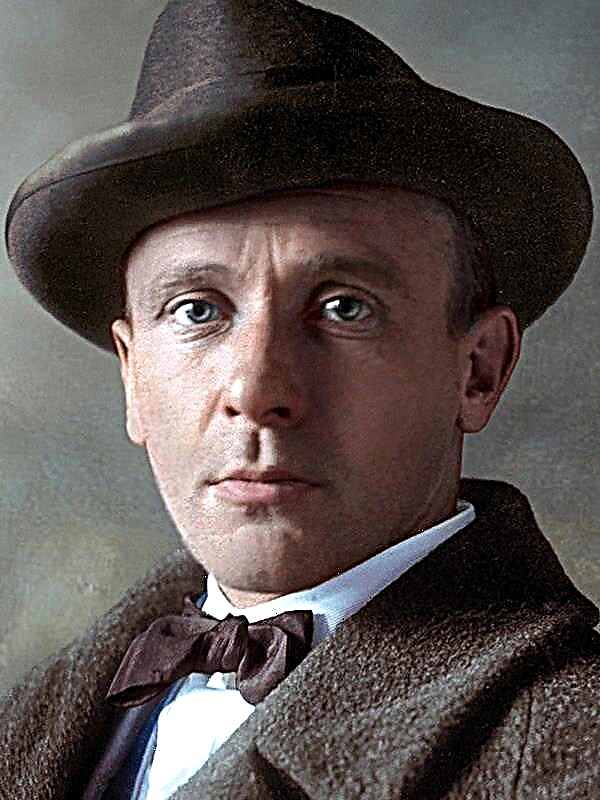
 Myself MBA
Myself MBA
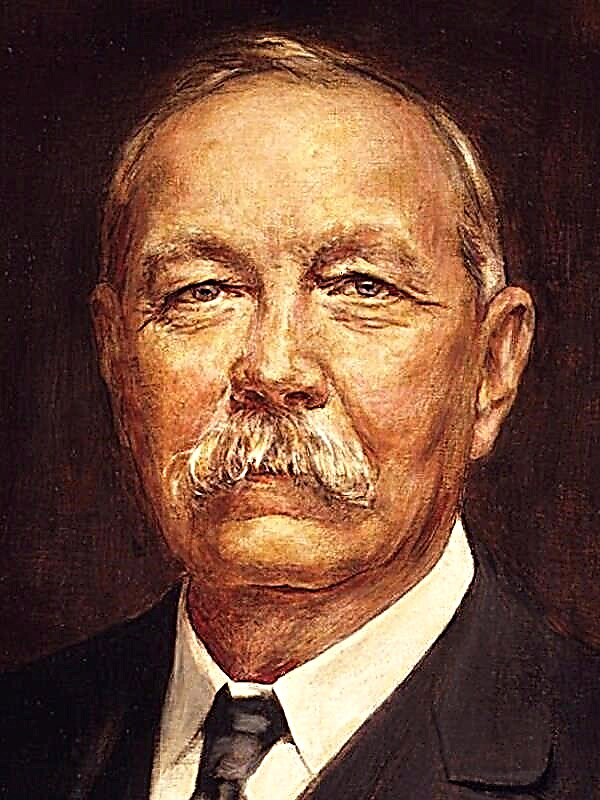
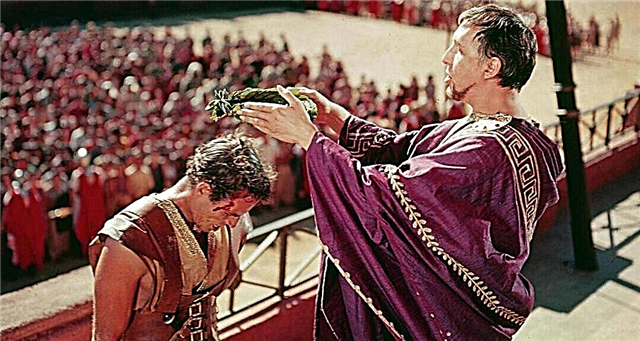 Ben gur
Ben gur


